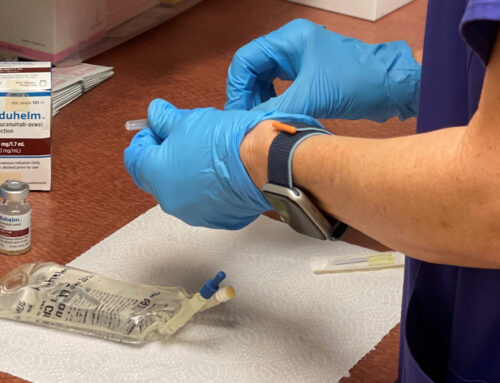Celebrating holidays means celebrating family. What a wonderful time for families to listen, and to collect stories from their Parents and Grandparents. This magical time is also a wonderful opportunity to detect troubles with short-term memory, and if present, seek help early on. Thankfully, our brains tend to hold onto long term memories like our childhood and early adulthood quite well. However, confusion about things that happened today, yesterday, last week, and last month are often the earliest sign of a dementing process. According to Alzheimers.gov the following symptoms are most common, depending on the severity of the disease:
- Memory loss, poor judgment, and confusion
- Changes in the ability to speak, understand, and express thoughts and/or words and to write and read
- Wandering and getting lost in a familiar neighborhood
- Trouble handling money and paying bills
- Repeating questions
- Using unusual words to refer to familiar objects
- Taking longer to complete normal daily tasks
- Loss of interest in normal daily activities or events
- Hallucinations, delusions, and paranoia
- Acting impulsively
- Not caring about other people’s feelings
- Problems with balance and movement
Some symptoms may not suggest dementia, as they may indicate uncontrolled diabetes, heart disease, or other medical problems. You should always consult your health care provider before making a rush to judgement. For seniors, Medicare pays for an annual memory test as part of a wellness examination, but you may have to request that it be done. Alternatively,
Columbus Memory Center offers a quick annual cognitive test called The Memory Number®. The Memory Number® is widely regarded as the first and only vital sign for brain health. This free, self-administered test offers a baseline understanding of brain health in approximately 15 to 20 minutes. This written test evaluates how your memory is functioning and assigns a number, 0 to 22, and can be easily shared with family members or a physician. Results should be expected in 2 to 4 weeks, will include a detailed explanation of the test score, and recommendations for the next steps in treatment or care.
If your loved one is 65 years or older, exhibiting one or more of the above symptoms, and/or you believe they need further treatment, you may make an appointment with Dr. Liss or Dr. Canedo directly. If you or your loved one is under 65, you will need a referral from your primary care provider. Treatments are evolving and new medications are coming to market. There is no cure for Alzheimer’s Disease or Dementia but there are ways to combat the disease before it takes hold. Fostering good brain health by dieting, exercise, controlling diabetes and blood pressure, quitting smoking, and keeping active will all contribute to better brain health.
If you or your family member has family history of Alzheimer’s/Dementia, please consider participating in Clinical Research. Research is for those 50+ (depending on the study) who meet certain requirements. Clinical research is always in need of participation from all ethnic backgrounds. Research starts with prevention studies and progresses as the disease progresses. Starting early, with a preventative study, could keep the disease at bay!
For more information call our office: 706-327-4000.





